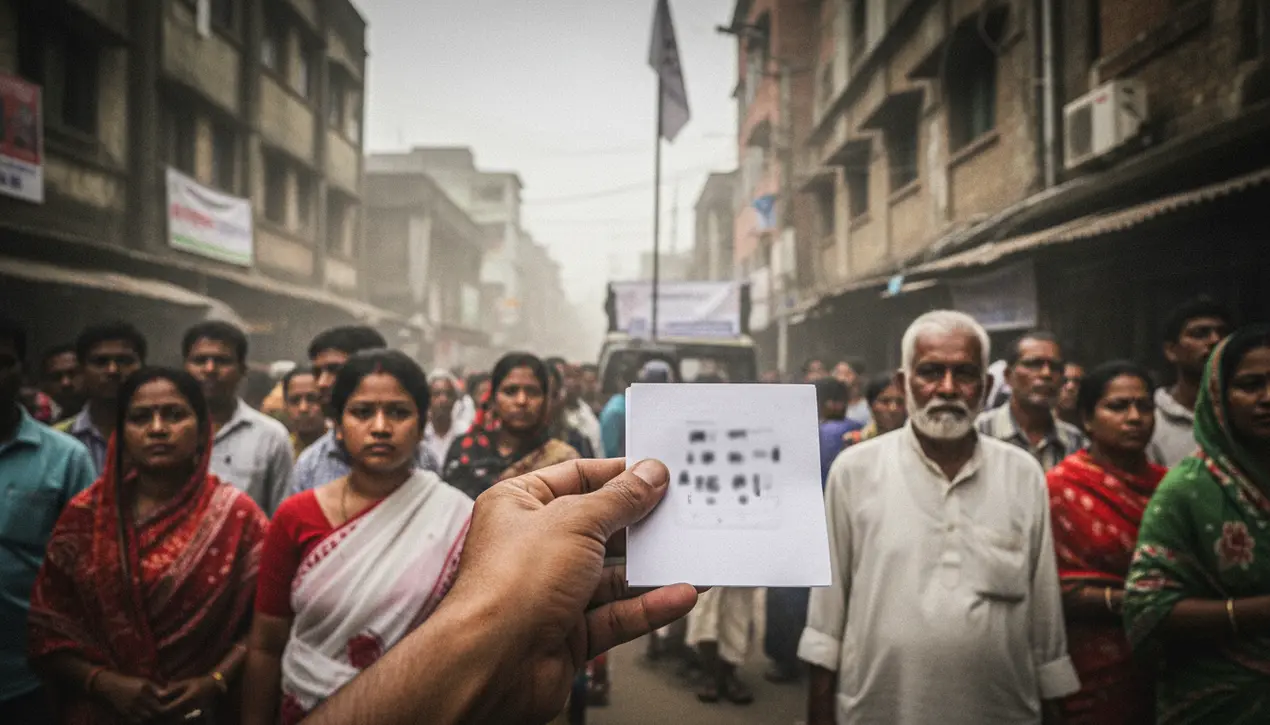
PoliticselectionsElectoral Reforms
Bangladesh Holds Referendum on Political Reform Amid Election.
RO
Robert Hayes
13 hours ago7 min read2 comments
Bangladesh stands at a critical juncture in its tumultuous political history, with a national referendum on political reform scheduled to coincide with its planned parliamentary election this February. This unprecedented move, orchestrated by the interim government of Nobel laureate Muhammad Yunus, represents a profound attempt to rebuild democratic institutions from the ashes of last year's uprising.The shadow of former leader Sheikh Hasina, sentenced to death in absentia for crimes against humanity, looms large over the entire process, creating a political atmosphere thick with both hope and trepidation. Analysts, however, are deeply divided on the feasibility and sincerity of this endeavor.Some draw parallels to historical transitions in nations like Chile or South Africa, where foundational votes sought to break from a painful past, yet they caution that the simultaneous holding of an election and a referendum risks creating a confused mandate and could be a tactic to legitimize the current interim authority rather than enact genuine, systemic change. The proposed blueprint for change, while not yet fully public, is believed to target the very structures that allowed for prolonged, centralized power, potentially introducing stronger judicial independence and term limits.Yet, the skepticism is palpable; the military, a perennial kingmaker in Bangladeshi politics, maintains a watchful, influential presence, and the deeply entrenched patronage networks that have defined the nation's two-party system for decades will not dissolve quietly. The international community, particularly key donors and regional powers like India and the United States, watches with bated breath, their stance on the Yunus administration a delicate balance between supporting a return to democratic order and condemning the legal proceedings against Hasina, which many of her supporters decry as politically motivated.The success or failure of this dual vote will not only determine Bangladesh's domestic trajectory for a generation but will also send a powerful signal throughout South Asia about the viability of using popular consultation to surgically dismantle an authoritarian legacy. The citizens of Bangladesh are thus not merely casting ballots for representatives; they are being asked to architect the very rules of their future political existence, a weighty responsibility in a nation where the promise of democracy has so often been betrayed by the reality of its execution.
#Bangladesh
#Sheikh Hasina
#Muhammad Yunus
#referendum
#elections
#authoritarianism
#democracy
#featured
Stay Informed. Act Smarter.
Get weekly highlights, major headlines, and expert insights — then put your knowledge to work in our live prediction markets.
Related News
Comments
Loading comments...
© 2025 Outpoll Service LTD. All rights reserved.